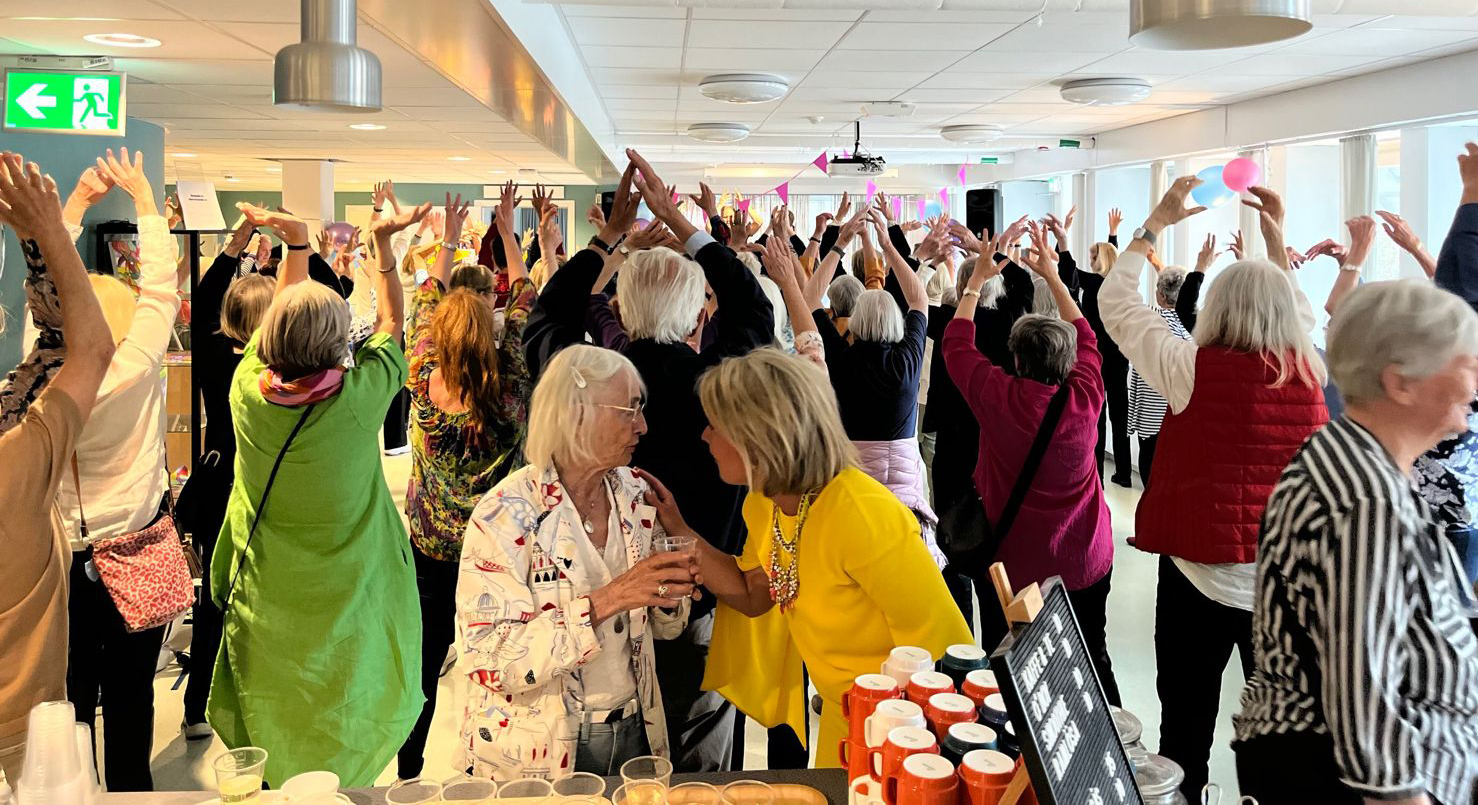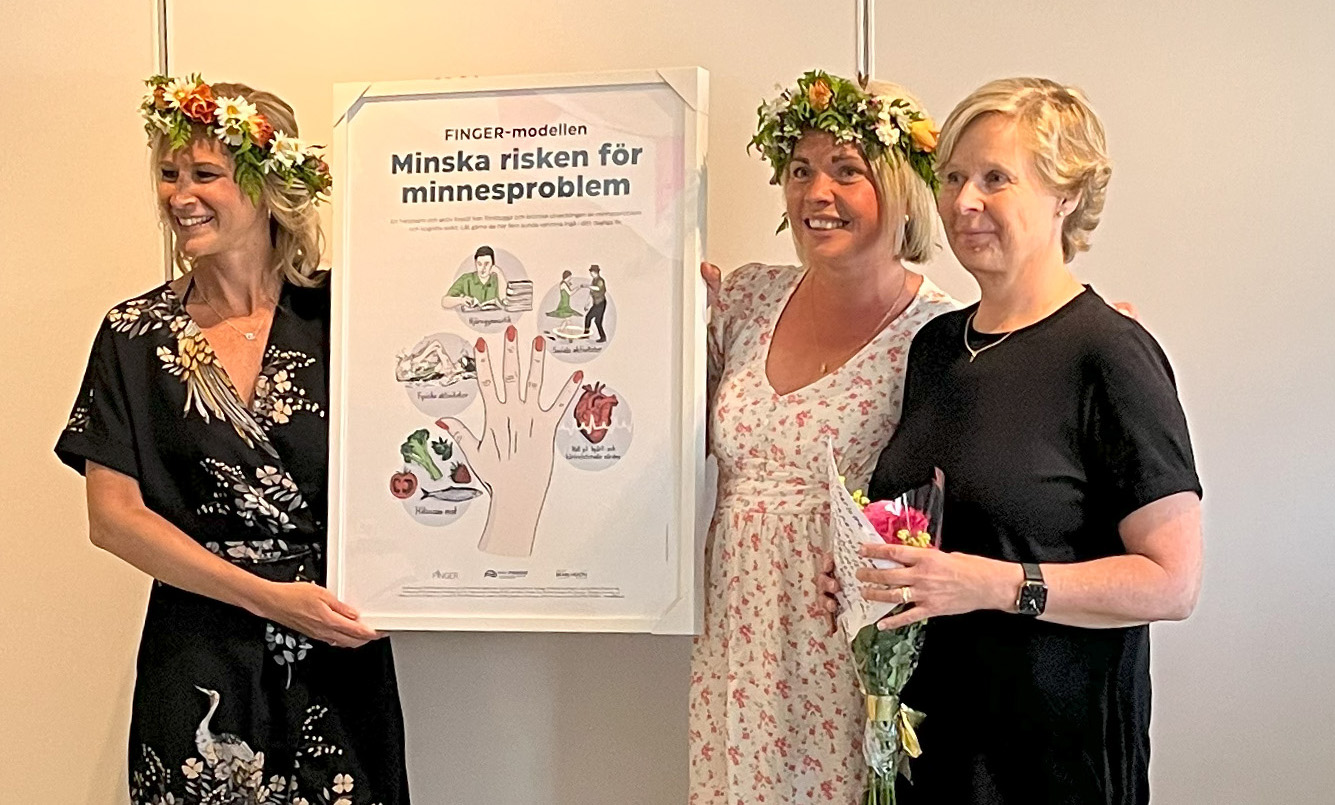Träna hjärna
Lifestyle program in Lidingö municipality
One of FBHI’s core priorities is to drive and support the implementation of FINGER research findings into real-world settings, for the benefit of individuals and societies.
Implementation and research combined
The Lidingö municipality in the Greater Stockholm area is the first municipality in the world to offer a FINGER-based lifestyle program to its citizens. The program, Train your Brain (Träna hjärna), is a collaboration between the Lidingö municipality, Karolinska Institutet, and FBHI. In addition to the activities and support it offers to senior citizens, Träna hjärna is also a Karolinska Institutet research project studying and evaluating the efficacy and processes of FINGER implementation.
Helping citizens to lifestyle changes
The Träna hjärna program helps Lidingö citizens assess and change their lifestyles, thus increasing their chances of maintaining and prolonging their everyday independence, general health, and experienced quality of life. The program is offered to elderly persons at risk of developing cognitive decline and dementia.
First program round completed
After a six months’ pilot round, and its evaluation, the first full-scale program round was conducted between September 2022 and June 2023. Out of 275 applicants, 34 participants were selected and enrolled. A second round started in the autumn of 2023, now with 50 participants. To qualify, participants must be Lidingö citizens, be 65 years or older, have room for lifestyle changes in their lives based on a lifestyle index, and live in their own home.
All “five fingers”
The program includes lectures about the five “fingers” of the FINGER model, individual motivating consultations, gym training, and cognitive training. All lectures and gym sessions also provide natural opportunities for social interaction. Pre- and post-program measurements and evaluations include physical functions, memory function, psychosocial factors, daily activities, and experienced quality of life. The cognitive memory training program is progressive and has been used in several FINGER-related research projects at Karolinska Institutet.
Humanitarian and health economy benefits
For the Lidingö municipality, this preventive and evidence-based program provides tools to use resources where they are most needed; in an early stage, helping individuals stay independent, and delaying the need for care. This comes with both humanitarian and health economic advantages. By delaying citizens’ moves to nursing homes, the municipality can allocate resources to meet other important and urgent needs among its population.



